The answer was revealed by researcher Trinh Quang Dung in the discussion 'Tea in Vietnamese cultural tradition' organized by the International Tea Master Academy in collaboration with the University of Social Sciences and Humanities, Ho Chi Minh City.
Although it only lasted a few hours, the seminar 'Tea in Vietnamese cultural traditions' at the University of Social Sciences and Humanities, Ho Chi Minh City attracted nearly 100 guests from young people to researchers, tea lovers and businessmen.
At the seminar, cultural researcher Trinh Quang Dung, MSc. Nguyen Hieu Tin - Head of Tourism Department, Ton Duc Thang University, tea master Ngo Thi Thanh Tam and many researchers and Vietnamese tea lovers shared and proposed to continue preserving, conserving and promoting the Vietnamese tea culture that has existed for thousands of years and was left by our ancestors.
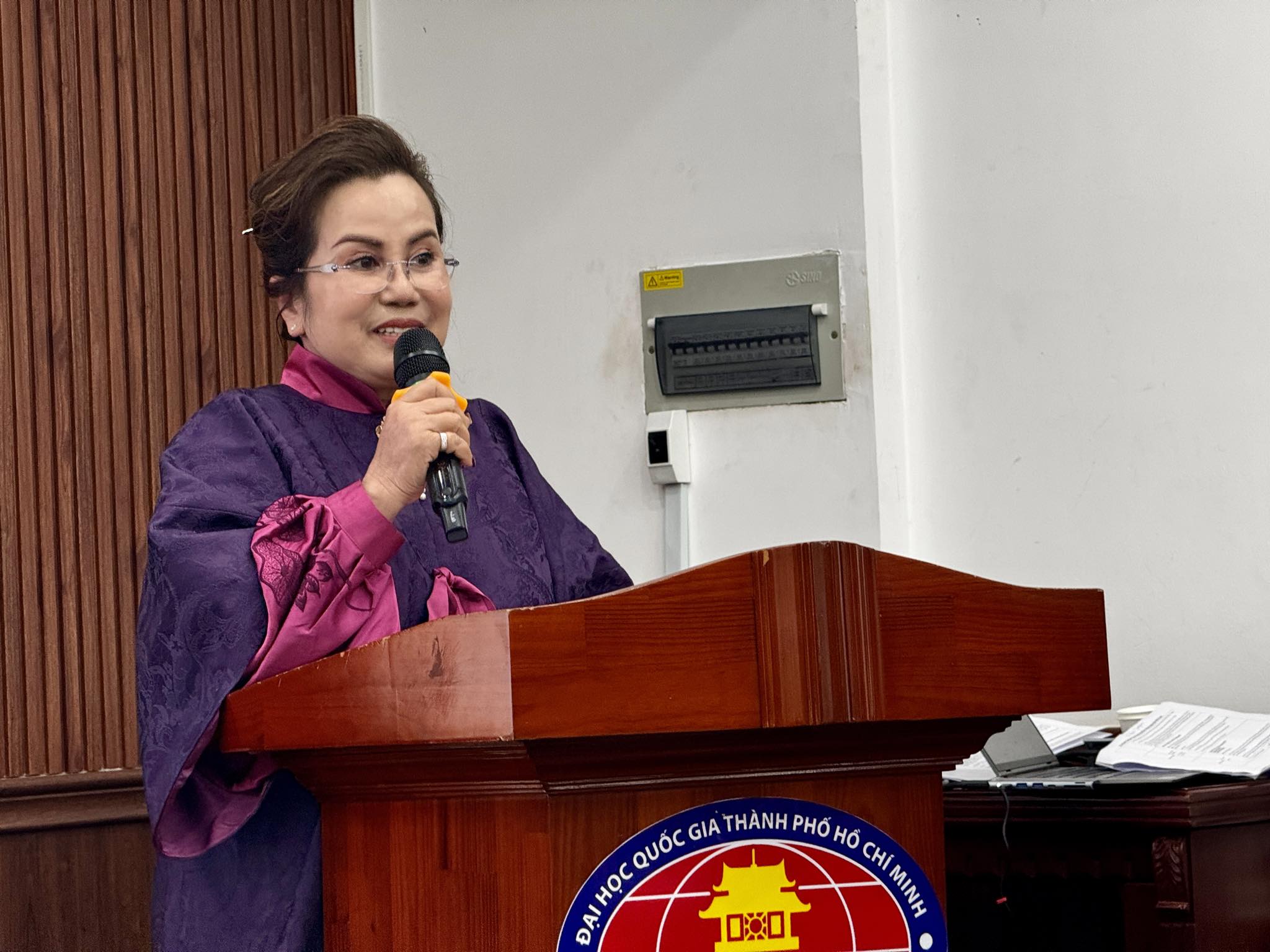
Tea master Ngo Thi Thanh Tam hopes that Vietnamese tea lovers will contribute to spreading the image and story of tea further to preserve and promote the tea heritage left by our ancestors.
What is the significance of tea in Vietnamese life?
The seminar helped people better understand the history, cultural significance, and rituals of Vietnamese tea, the role of tea in cultural connection and tourism development, as well as the challenges facing Vietnamese tea culture in the context of global integration and development.
Speaking at the seminar, Dr. Pham Tan Ha, Vice Principal of the University of Social Sciences and Humanities, Ho Chi Minh City, said that this is an academic forum that creates opportunities for experts, researchers and learners to discuss the values of Vietnamese tea culture and find appropriate directions for preservation and development.
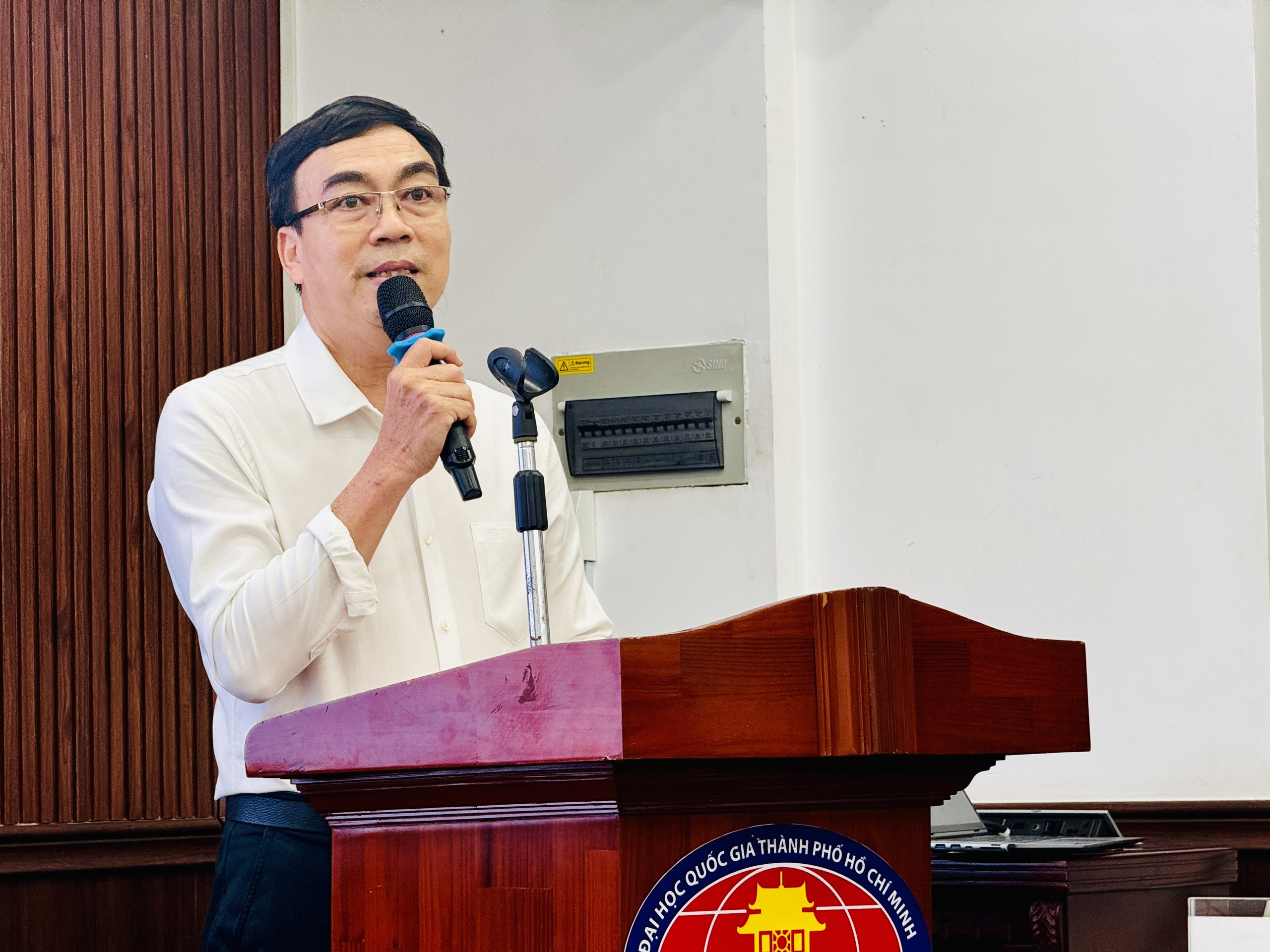
Dr. Pham Tan Ha speaks at the seminar
"In the current context, Vietnamese culture is facing many challenges regarding new consumption trends in modern society. This puts traditional cultural values at risk of being lost. For that reason, the discussion was organized not only to evaluate the historical and spiritual values of tea but also to look for specific solutions to honor culture," Dr. Pham Tan Ha raised the issue.
Master Nguyen Hieu Tin said that tea is a unique oriental culinary art. In the past, tea was considered one of the seven indispensable flavors besides water, salt, vinegar, soy sauce, oil... including tea. In spiritual life, tea is a form of art, an elegant pastime of the past, likened to painting, calligraphy, and chess. This shows that tea has both material and spiritual value, going beyond its original function of quenching thirst to become a spiritual cultural feature with many imprints.
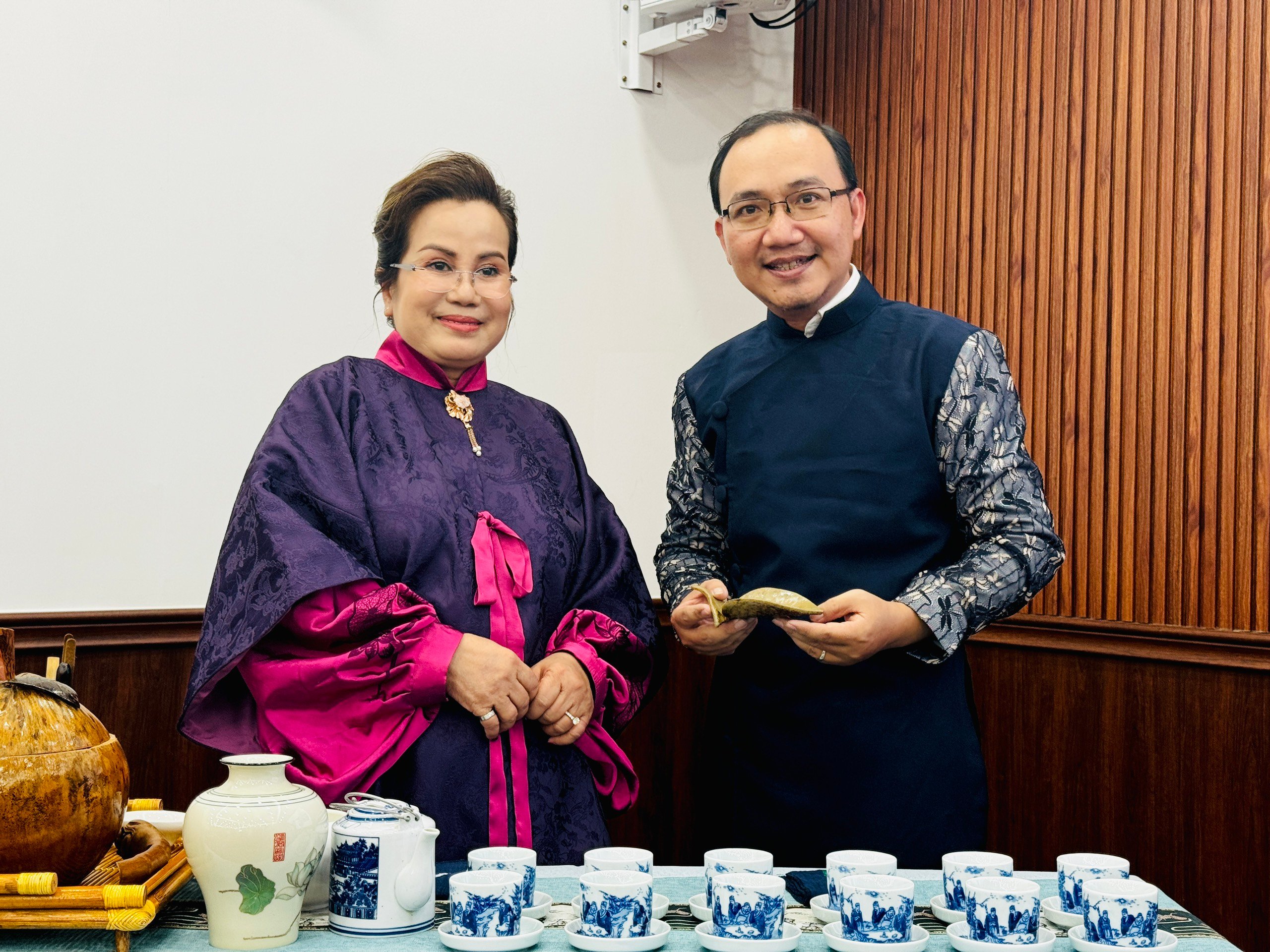
Master Nguyen Hieu Tin (right) and tea master Ngo Thi Thanh Tam shared interesting things at the discussion about Vietnamese tea.
In communication culture, tea plays an important role, drinkers can contemplate the past and present when enjoying tea. Tea is also a connection of feelings, meetings between people, connecting community and social values. The art of tea drinking is formed from many schools and styles that express cultural style, characteristics of each region and country.
"When enjoying tea, it is not just about tasting tea but also expanding into a tea culture space. In this space, many types of art are accumulated, such as a way to connect and catalyze poets to create, similar to painting and calligraphy. The art of enjoying tea has created a mark of the unique spiritual value of tea, an all-powerful cultural product. During festivals or meetings, in addition to drinking tea while talking, tea is also a meaningful gift. Another peak is that tea appears in spiritual life with indispensable rituals," said Mr. Tin.
In short, Mr. Tin said that tea has four great meanings: it is the origin of cultural communication, a cultural gift product, the source for other art forms to develop, and plays an important role in spiritual life.
Thousands of years of heritage left by our ancestors
Cultural researcher Trinh Quang Dung, who is known as the author of the book Vietnamese Tea Civilization (one of the representative works, considered the Encyclopedia of Vietnamese tea), said that Vietnamese tea originated 5,000 years ago. "Why do I dare to say 5,000 years because the tea ancestor that the whole world recognizes today is Shennong, the one who discovered tea for mankind. For Vietnam, the only ancestor is Shennong, there is no second person," Mr. Dung affirmed.
The ancient cultural customs of the Vietnamese people demonstrate their closeness and attachment to the life cycle from birth, maturity, beliefs, and death.
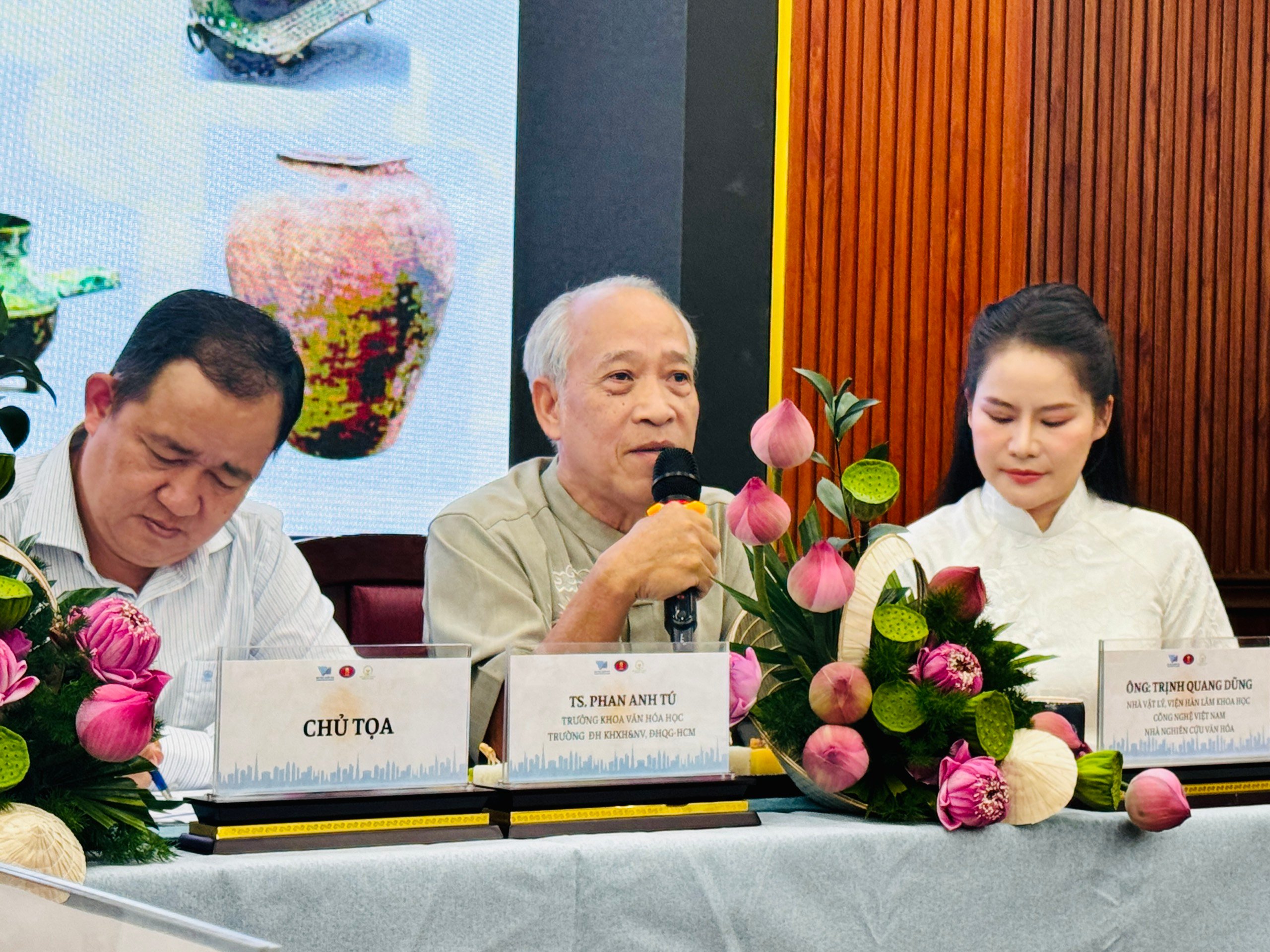
Cultural researcher Trinh Quang Dung shares about tea
When born, Vietnamese people bathe in fresh tea. In daily life, when they grow up, the main drinks are fresh tea, iced tea, loose tea, sweet soup, and lam tea. Tea is also a precious item that must be present in important events such as weddings (ancient Vietnamese people brought tea, cakes, and soil to ask for a wife), an essential item in festivals, and a sacred precious item in Vietnamese spirituality. When "departing", dry tea is spread at the bottom of the coffin during burial, keeping it clean throughout the ceremony. Tea is a precious and elegant item in social relations - tea diplomacy.
"Tea has been with Vietnamese people since their ancestors' time, has many good medicinal properties, and is present in many people's lives. Vietnam is the only country where two types of tea exist: folk tea and royal tea. Folk tea is for thirst quenching purposes, while royal tea was previously for the upper class but has now entered the lives of many people, drinking to contemplate and enjoy the essence of tea," Mr. Dung shared.
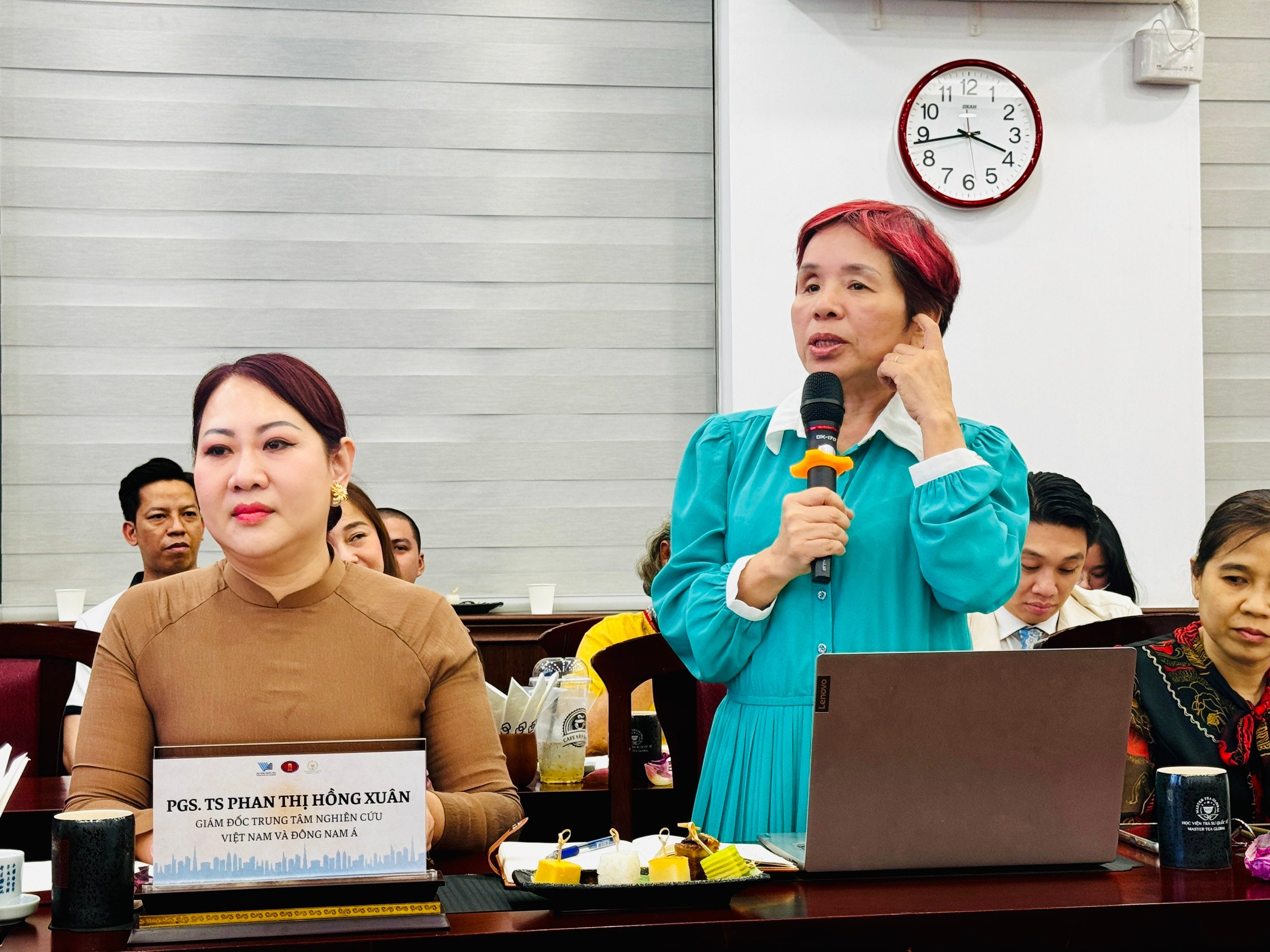
Prof. Dr. Phan Thi Thu Hien, senior lecturer at the University of Social Sciences and Humanities, Ho Chi Minh City, shared at the seminar.
Clip of girl Phan Que Ha Vy making tea attracts everyone's attention
According to Mr. Dung, in addition to daily life, tea also plays an important role in the development of landscape and resort tourism. Tea tourism is a potential gap in the overall Vietnamese tourism market. Tea has strengths in Southeast Asia and the world, promising to contribute significantly to Vietnam's smokeless industry.
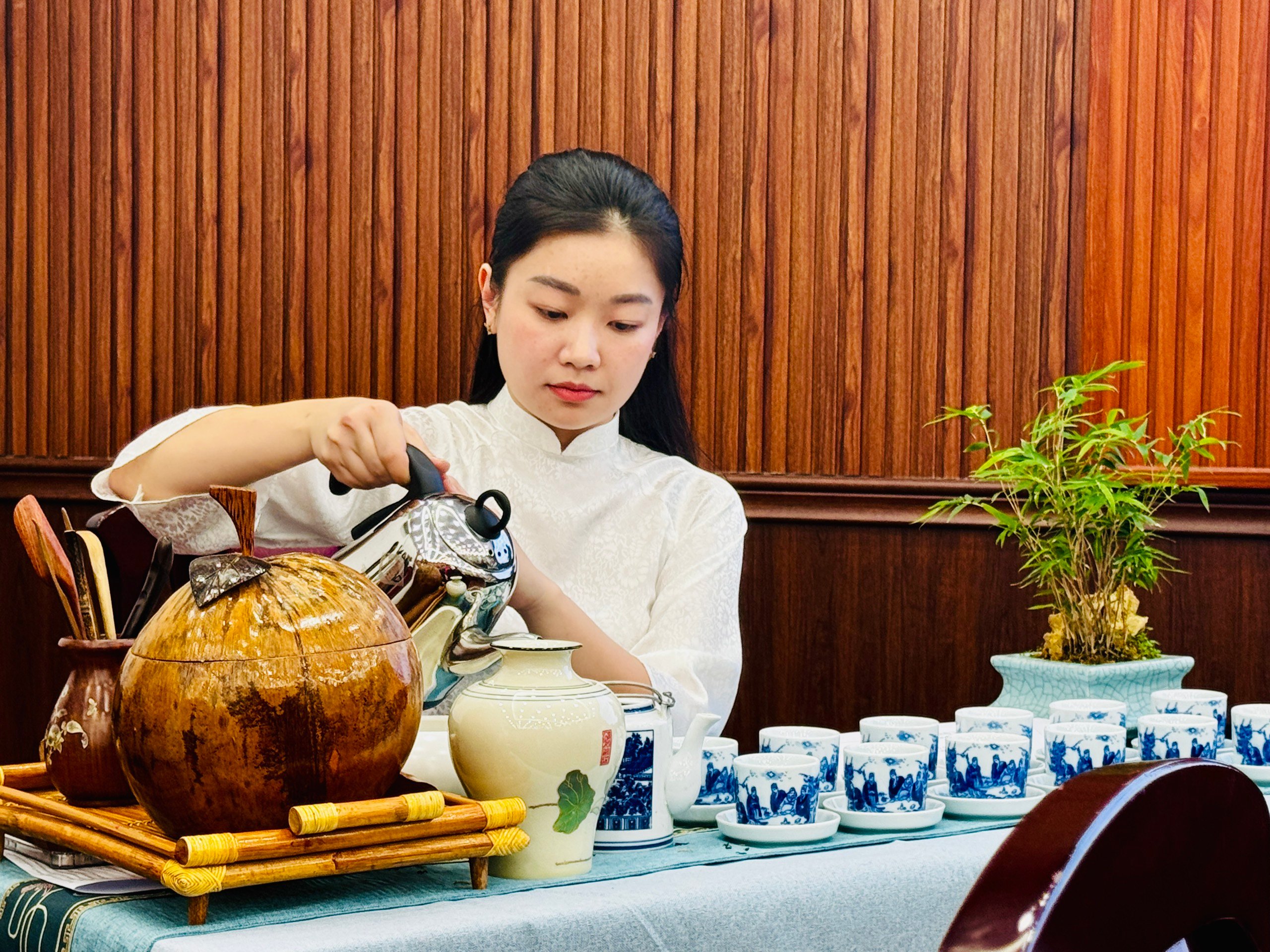
Tea was made by Phan Que Ha Vy for everyone attending the discussion to enjoy.
Attending the seminar, many people also left questions and opinions about solutions to develop Vietnamese tea culture in the context of integration.
Among them, Ms. Phan Huong, a tea artist in Vung Tau, said that she has spent the past 5 years pursuing the spread of Vietnamese tea even though she does not directly produce it. Every year, she organizes a tea party with more than 1,000 participants from the elderly to the young.
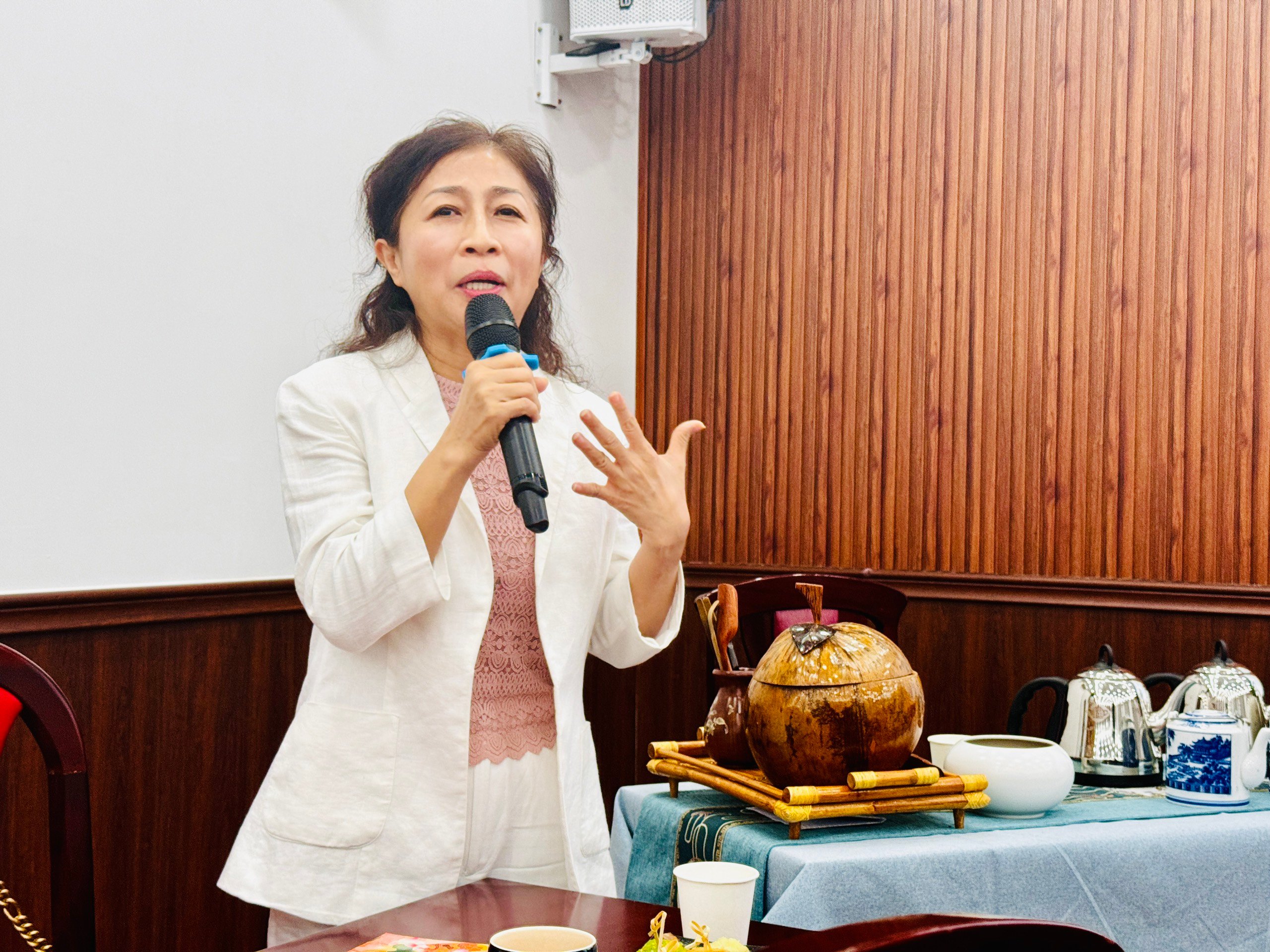
Ms. Phan Huong shares solutions for developing tea culture
"Through tea parties, I will tell the participants about Vietnamese tea culture. Over the past 3 years, I have expanded and successfully implemented it with prisoners. The first year, everyone responded even though it was not easy to bring tea in before. I performed tea, served tea and taught them some health exercises. Through serving tea, I convey a moral message for prisoners to listen and understand," said Ms. Huong.
The seminar also attracted many opinions and suggestions from Associate Professor, Dr. Phan Thi Hong Xuan (University of Social Sciences and Humanities); Mr. Dao Ngoc Tho - General Director of Doanh Chau Tea Enterprise (tea exporting unit to Taiwan); Dr. Duong Duc Minh, Deputy Director of the Ho Chi Minh City Institute for Economic and Tourism Development Research.
The proposed ideas revolve around the story of the space to preserve and promote Vietnamese tea culture. In addition, developing the tea industry into a typical Vietnamese product that can reach many international markets, as well as turning Vietnamese tea into a unique and typical Vietnamese tourism product.
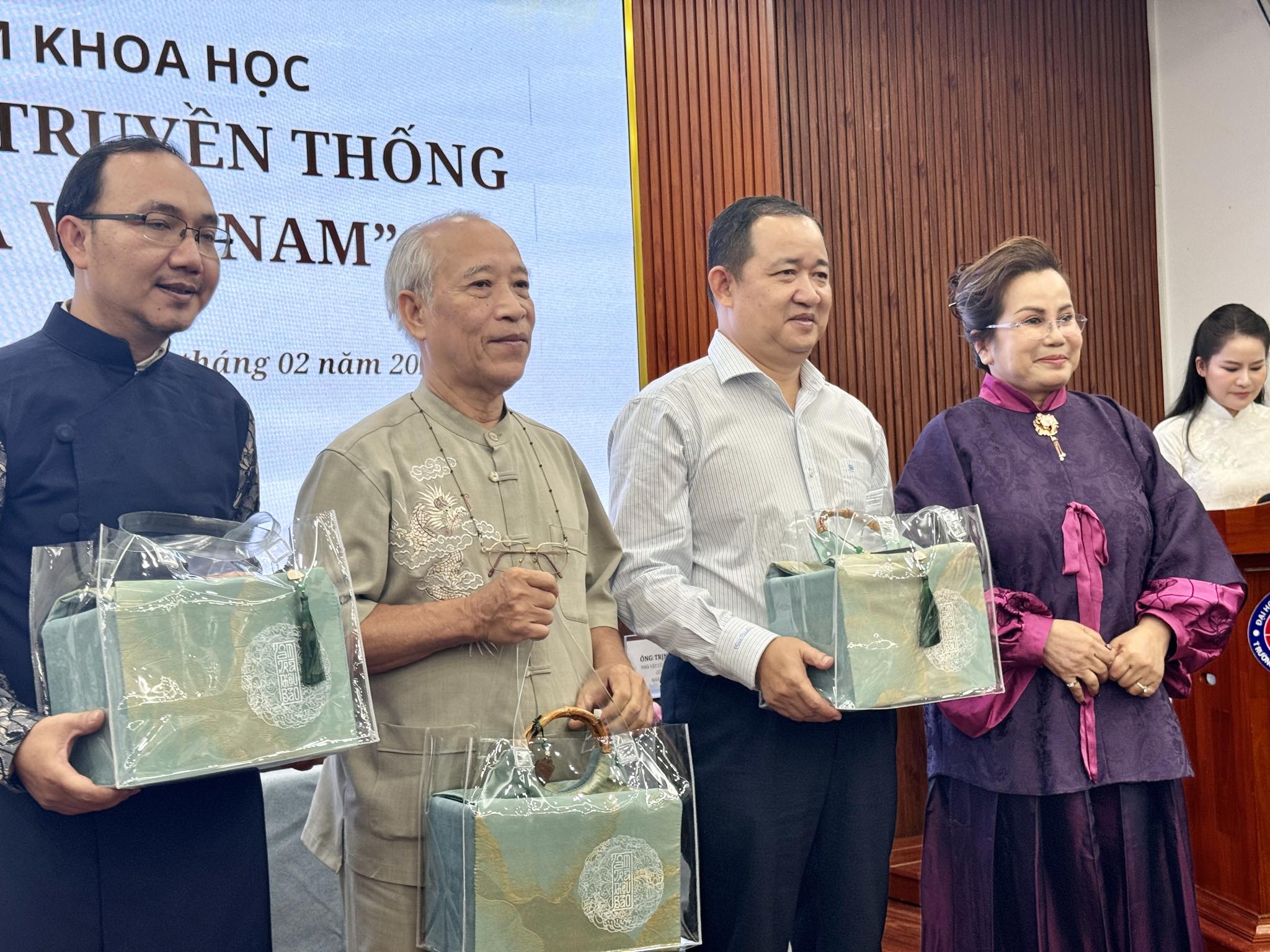
The organizers of the seminar took souvenir photos after concluding 3 hours of exchanging and sharing about Vietnamese tea with a lot of knowledge and love for tea.
Dr. Duong Duc Minh raised the issue of how to make Vietnamese tea more accessible to international tourists coming to Vietnam, especially in Ho Chi Minh City (when the number of international tourists coming to Vietnam is increasingly booming). Mr. Minh is also planning to create special tea-drinking spaces exclusively for foreign tourists right in the center of Ho Chi Minh City, creating more cultural bridges and interesting tourism categories for the city.
The story of preserving, elevating and promoting Vietnamese tea to become a unique cultural heritage of the nation, inheriting and "finding the old path" that our ancestors have left for their descendants for thousands of years continues unceasingly despite the limited time of the discussion.
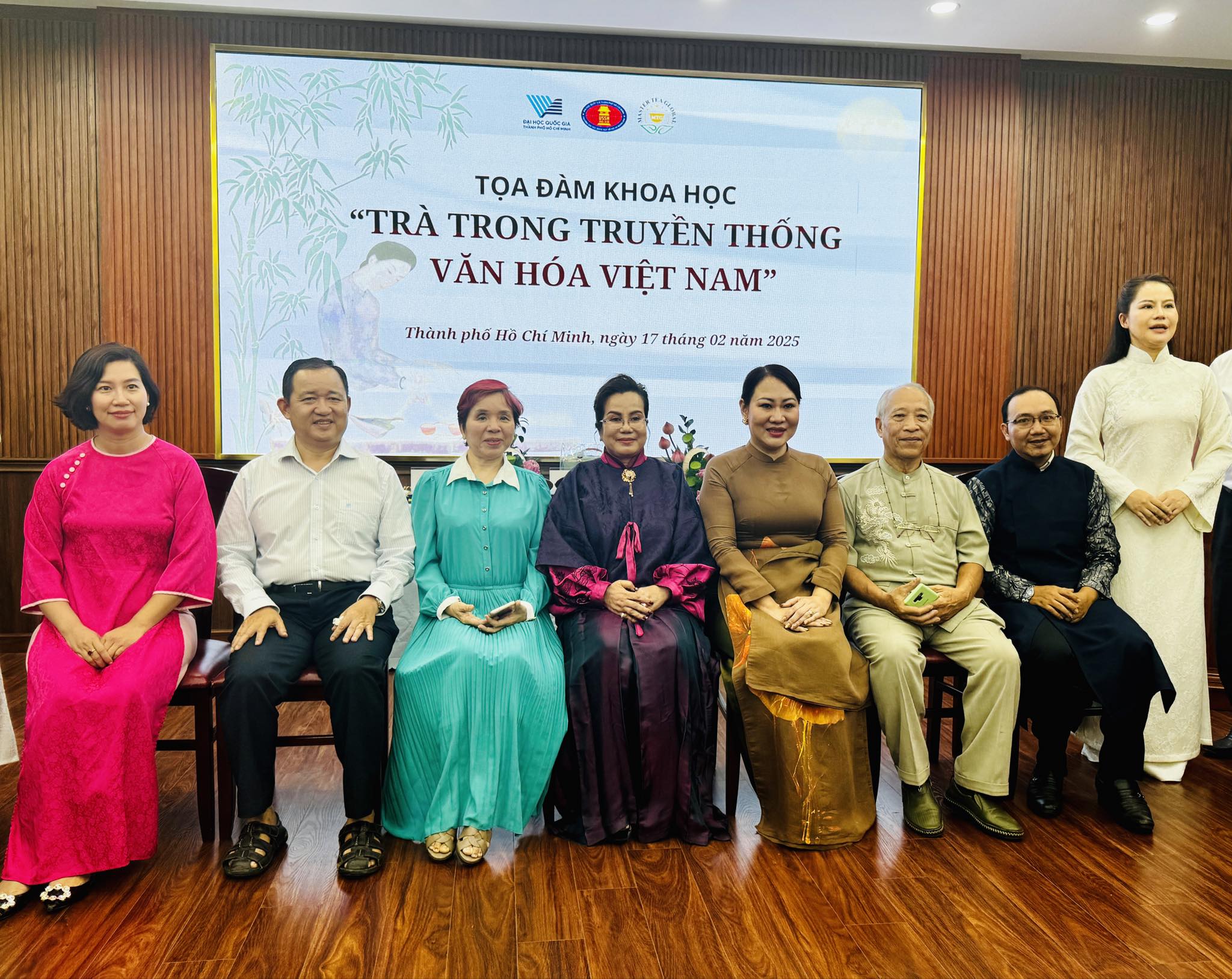
Speakers and Vietnamese tea researchers took souvenir photos together with the hope of continuing to promote and develop Vietnamese tea heritage.
Closing the discussion, Tea Master Ngo Thi Thanh Tam, founder of the MTG International Tea Master Training Academy, expressed her thanks to the speakers, researchers and everyone who loved tea and attended with great enthusiasm and excitement.
According to Tea Master Thanh Tam, the Vietnamese tea heritage left by our ancestors is already available. What is important is that now each individual present here will contribute to spreading the image and heritage of tea to more people.
The founder of the International Tea Master Academy shared that in order to effectively and vividly spread Vietnamese tea, many people need to understand tea and have a "special love" for Vietnamese tea. "At my academy, we not only train people to make tea, but also to understand, love tea and know how to make tea. I hope that those who love Vietnamese tea and want to make delicious tea will learn and promote the quintessence of the past, and absorb the advances of the times so that Vietnamese tea can be proud of its 5,000-year history," said tea master Ngo Thi Thanh Tam.
Source: https://thanhnien.vn/tra-viet-co-tu-bao-gio-lam-sao-luu-giu-di-san-ngan-nam-ma-cha-ong-de-lai-185250218104405318.htm








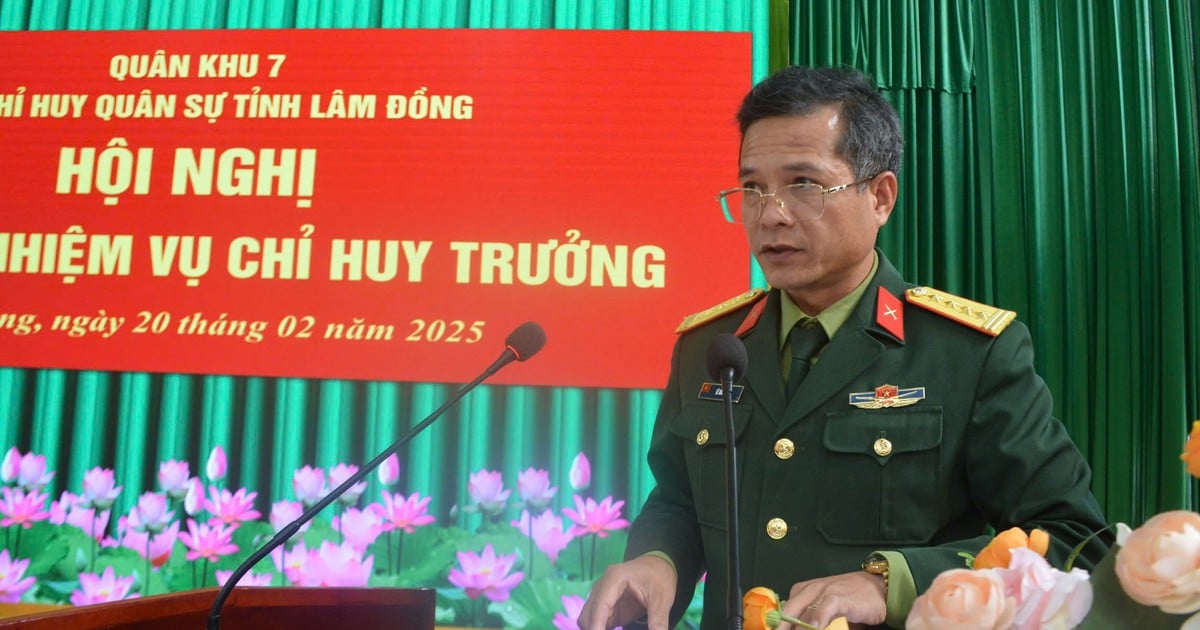


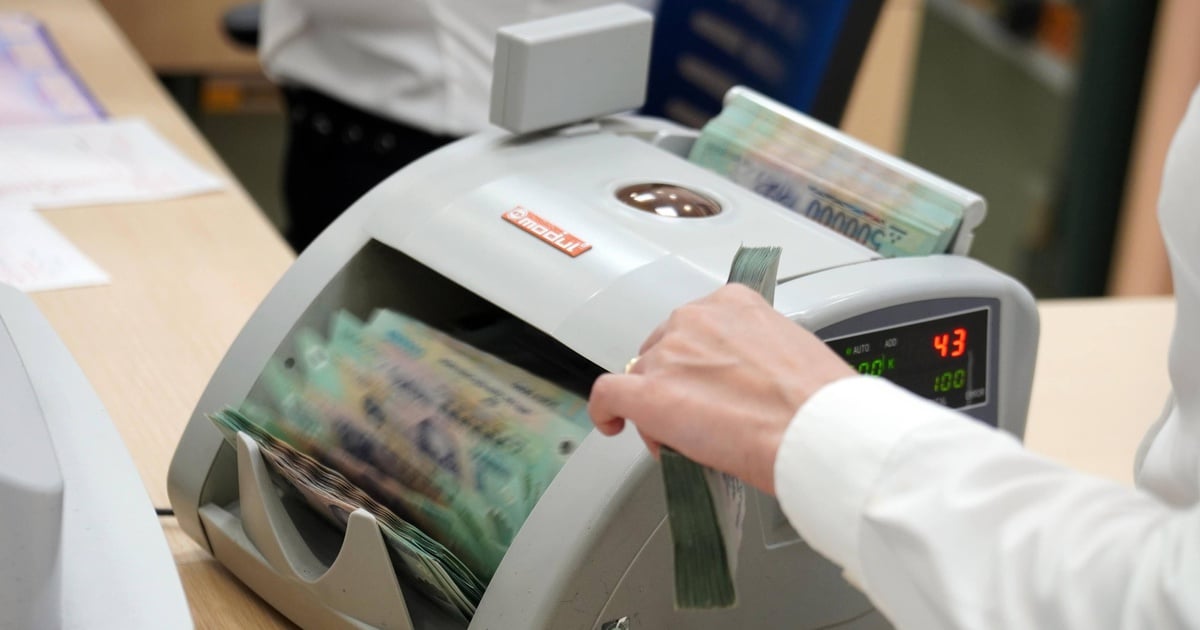
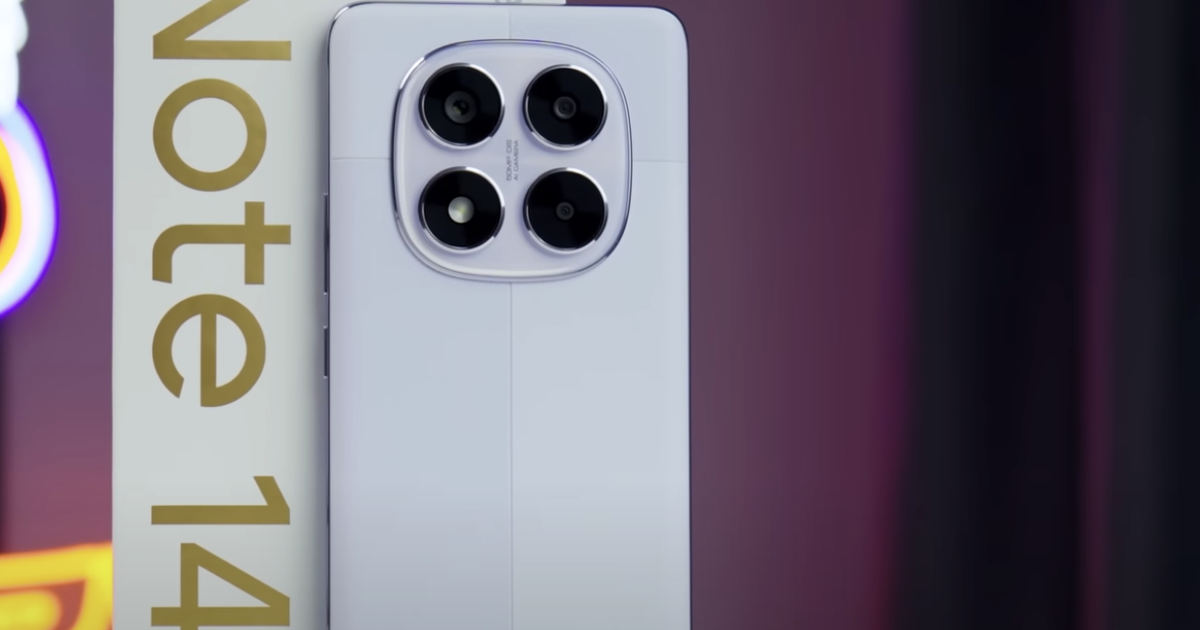


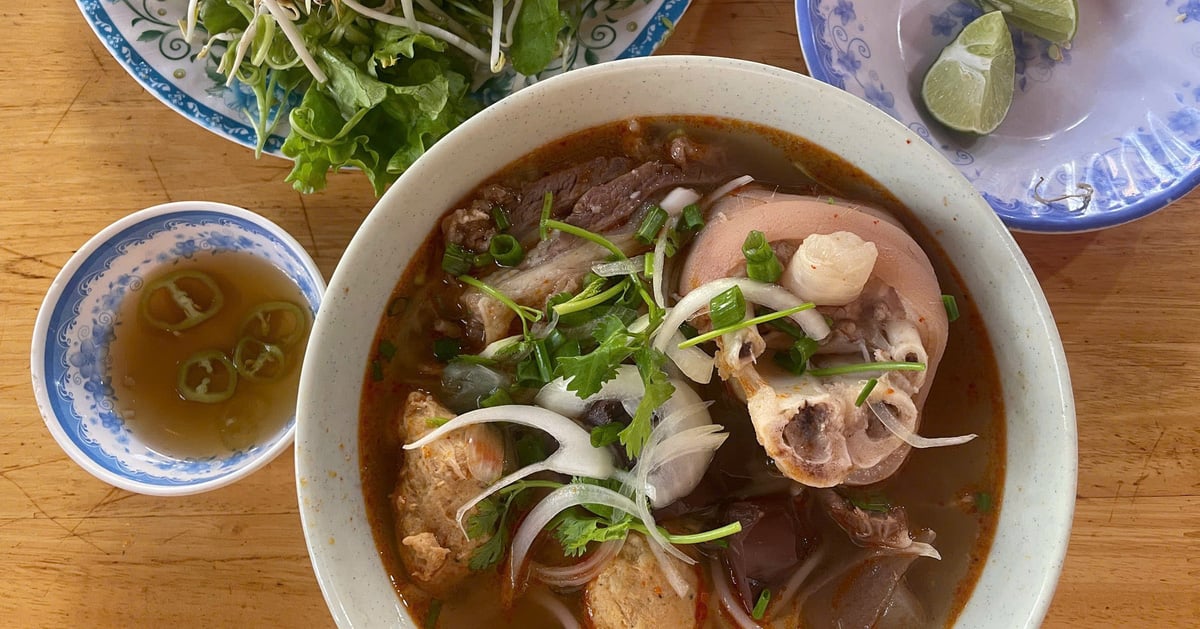

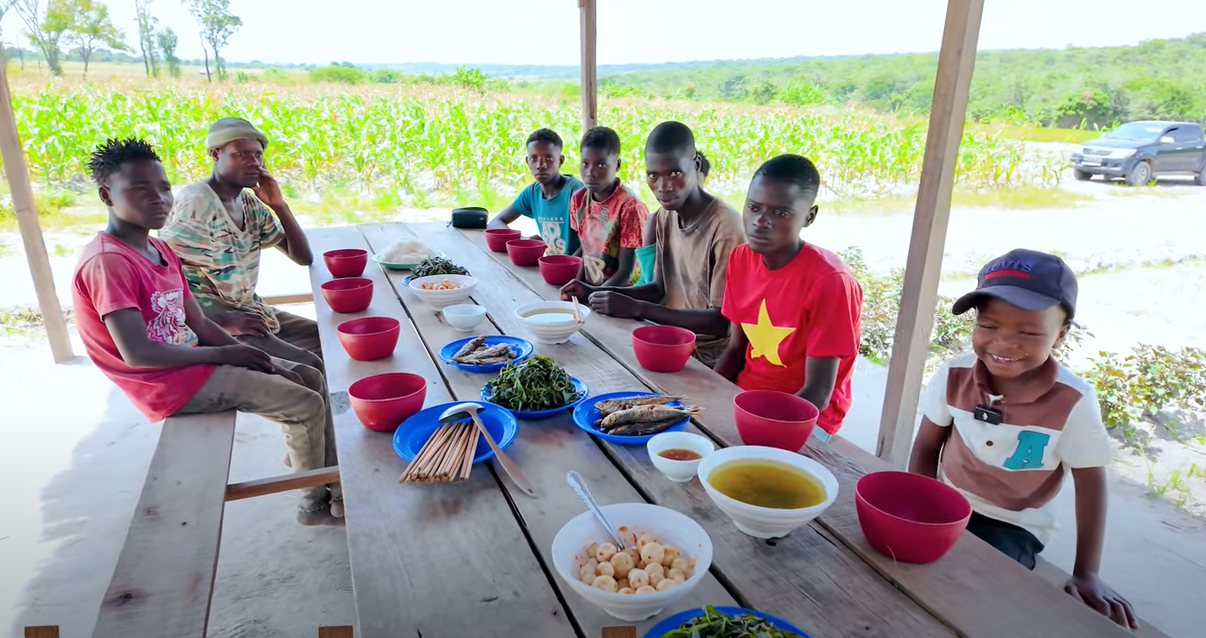
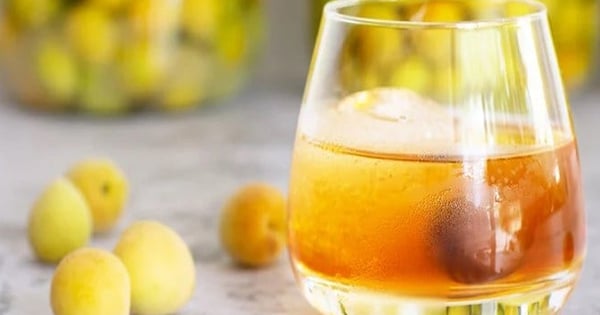

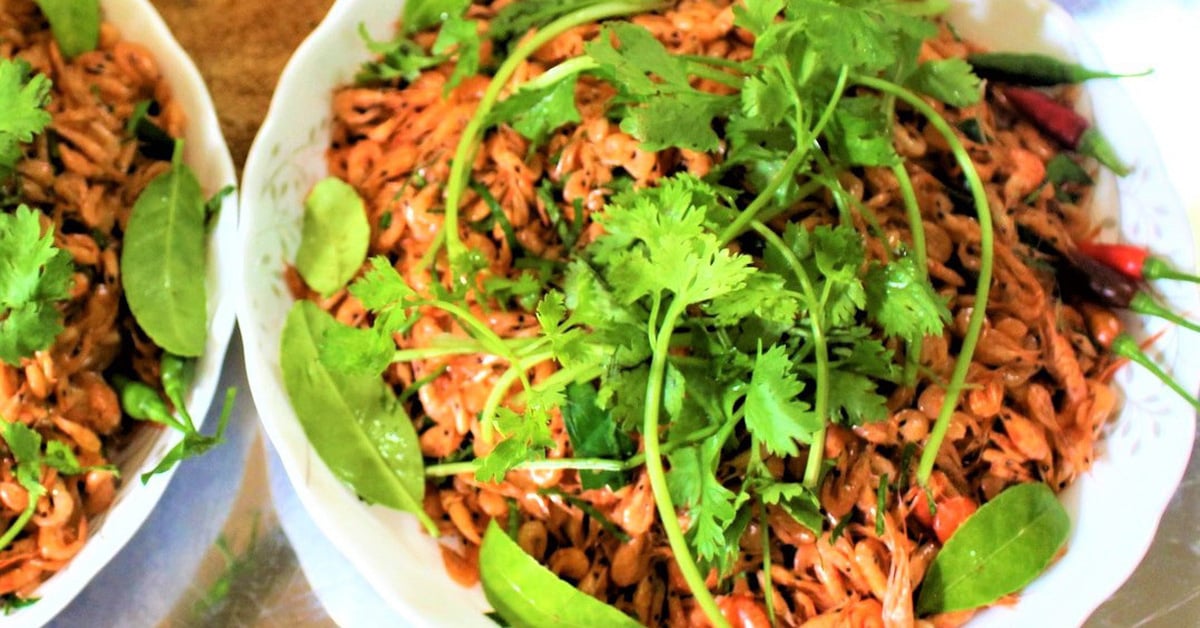
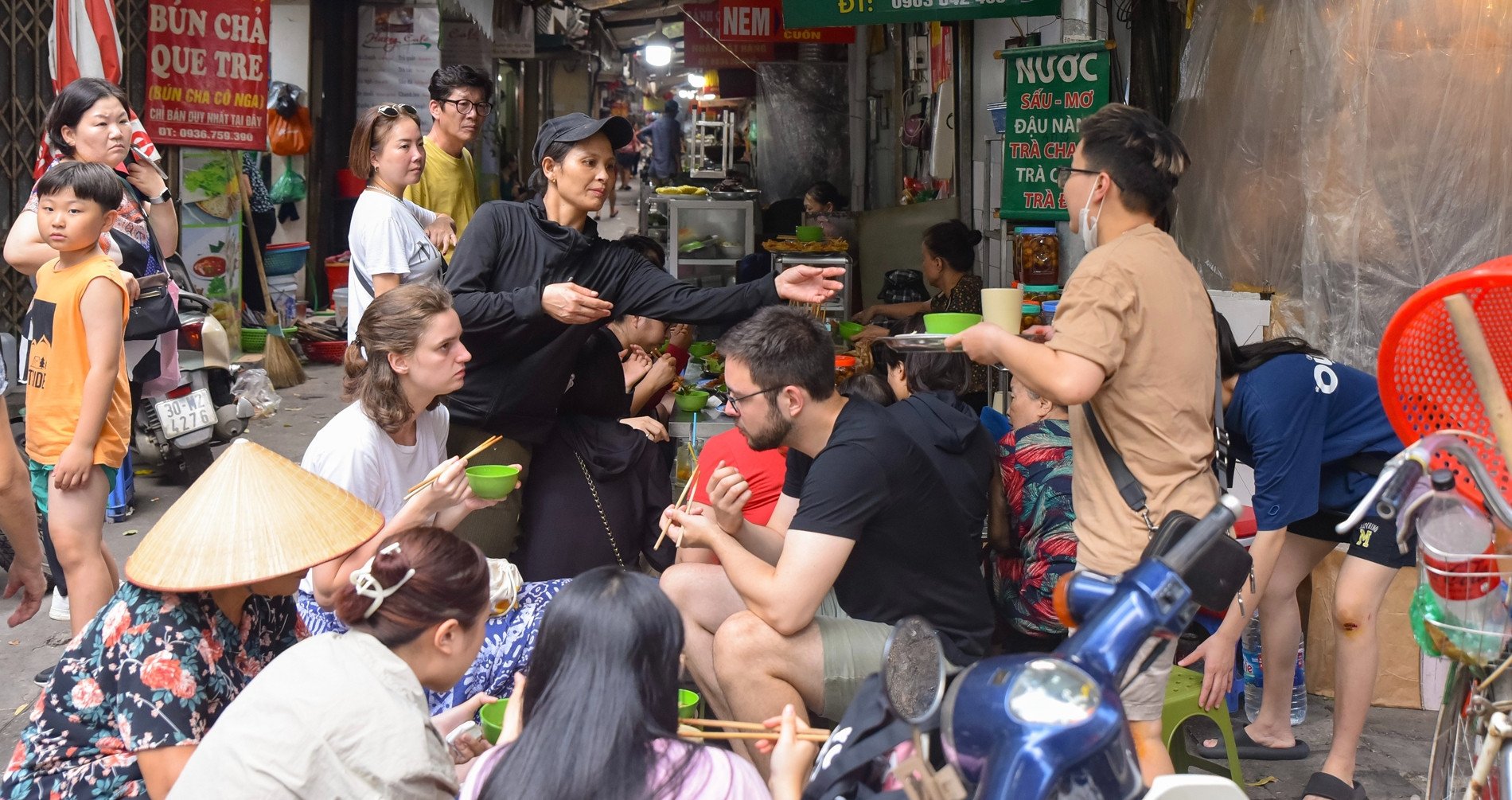
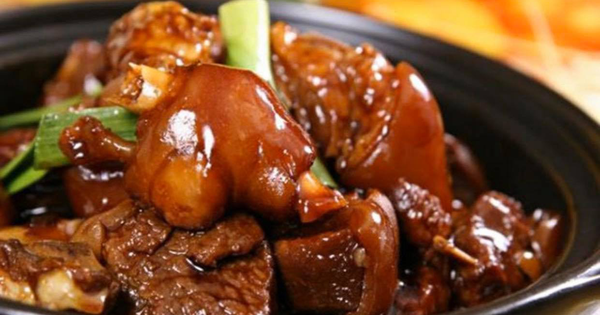






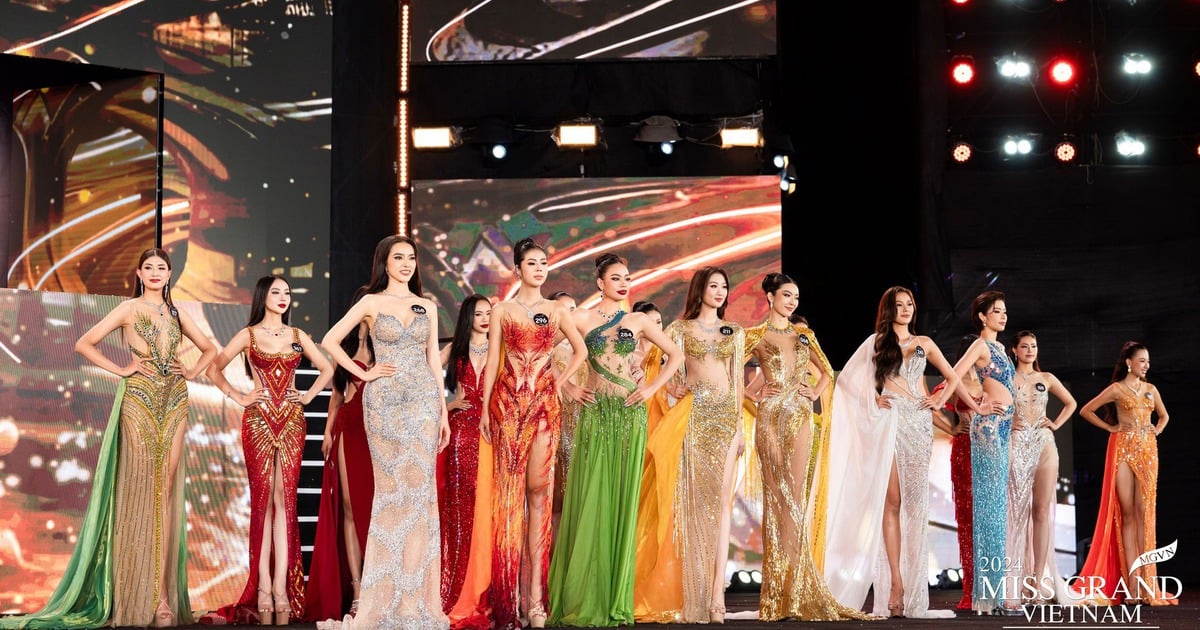


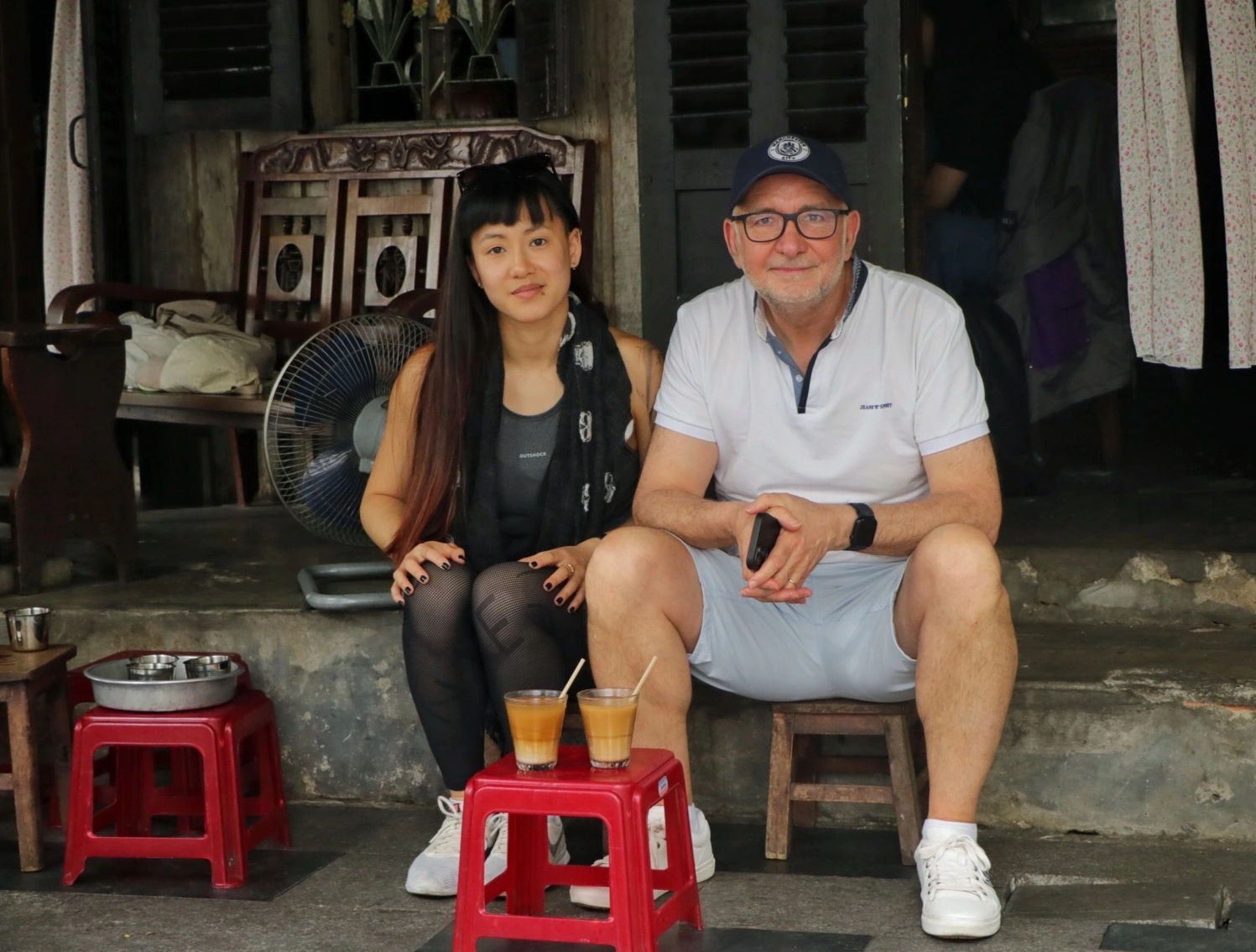
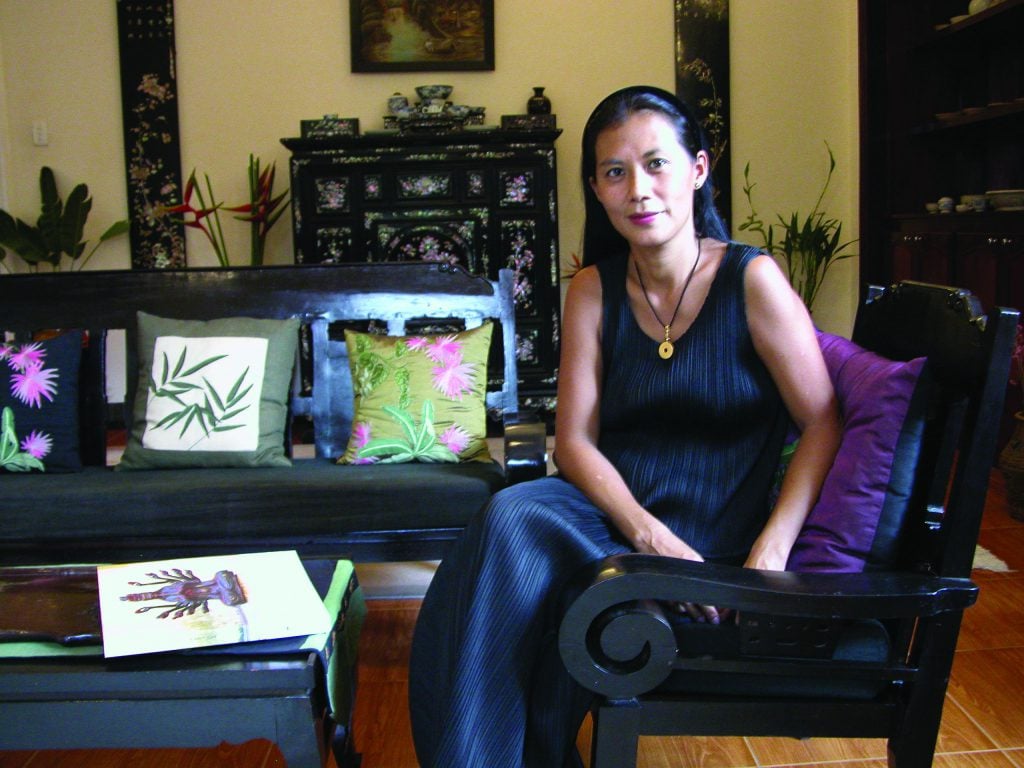
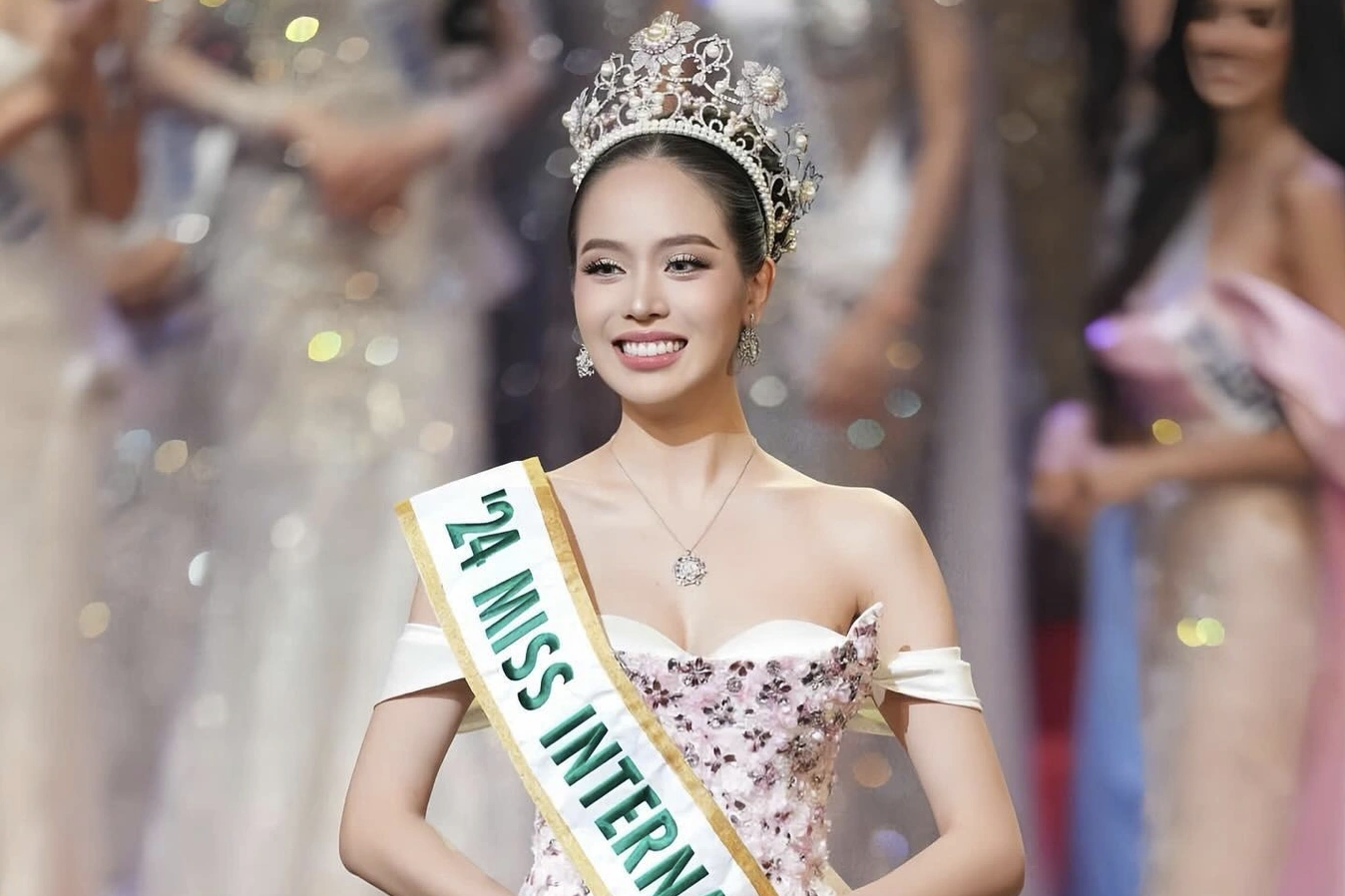

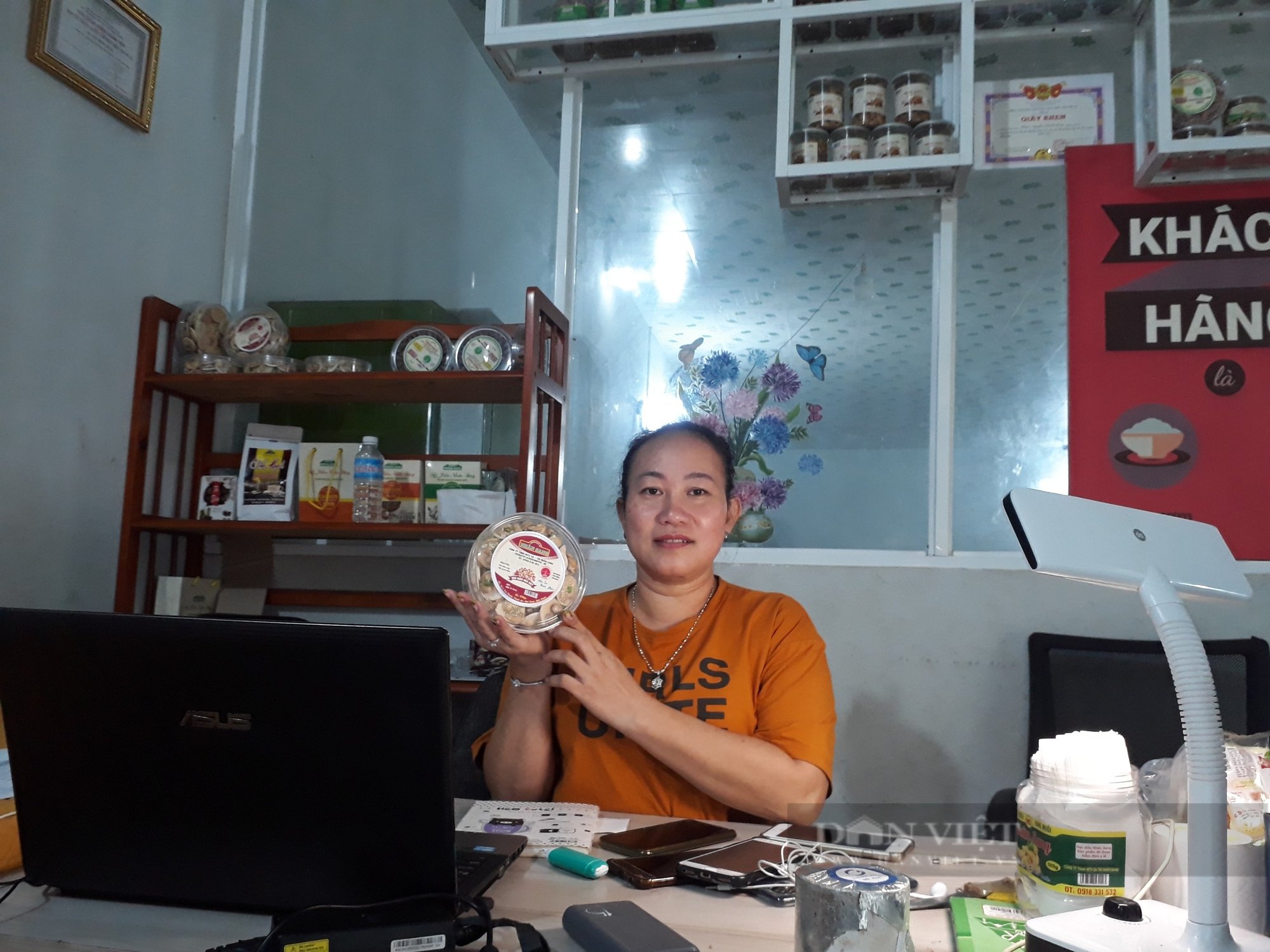

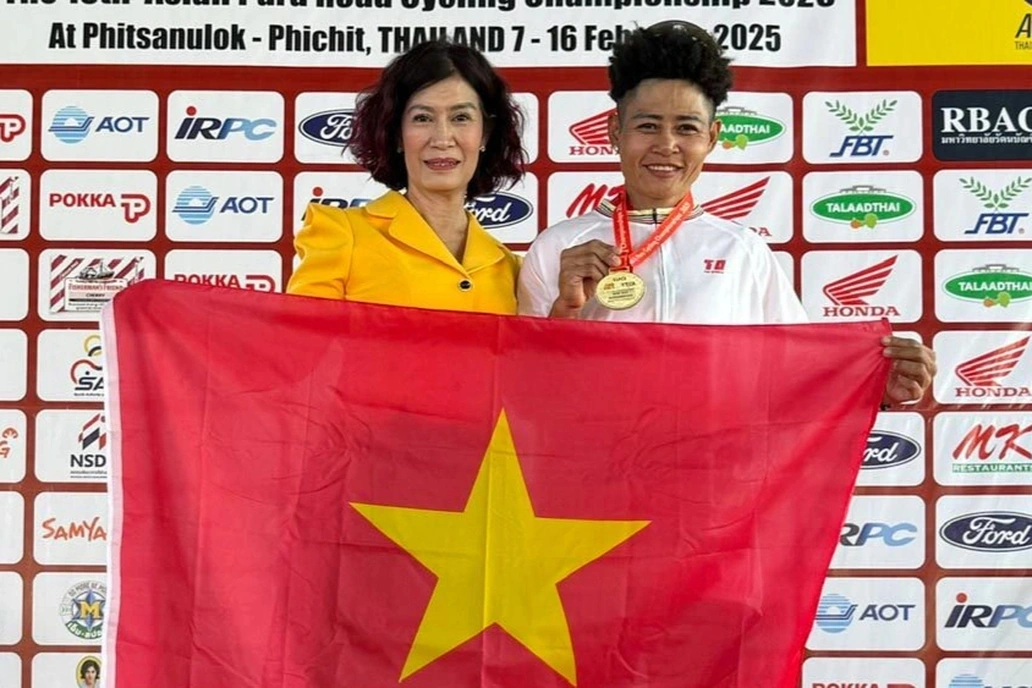
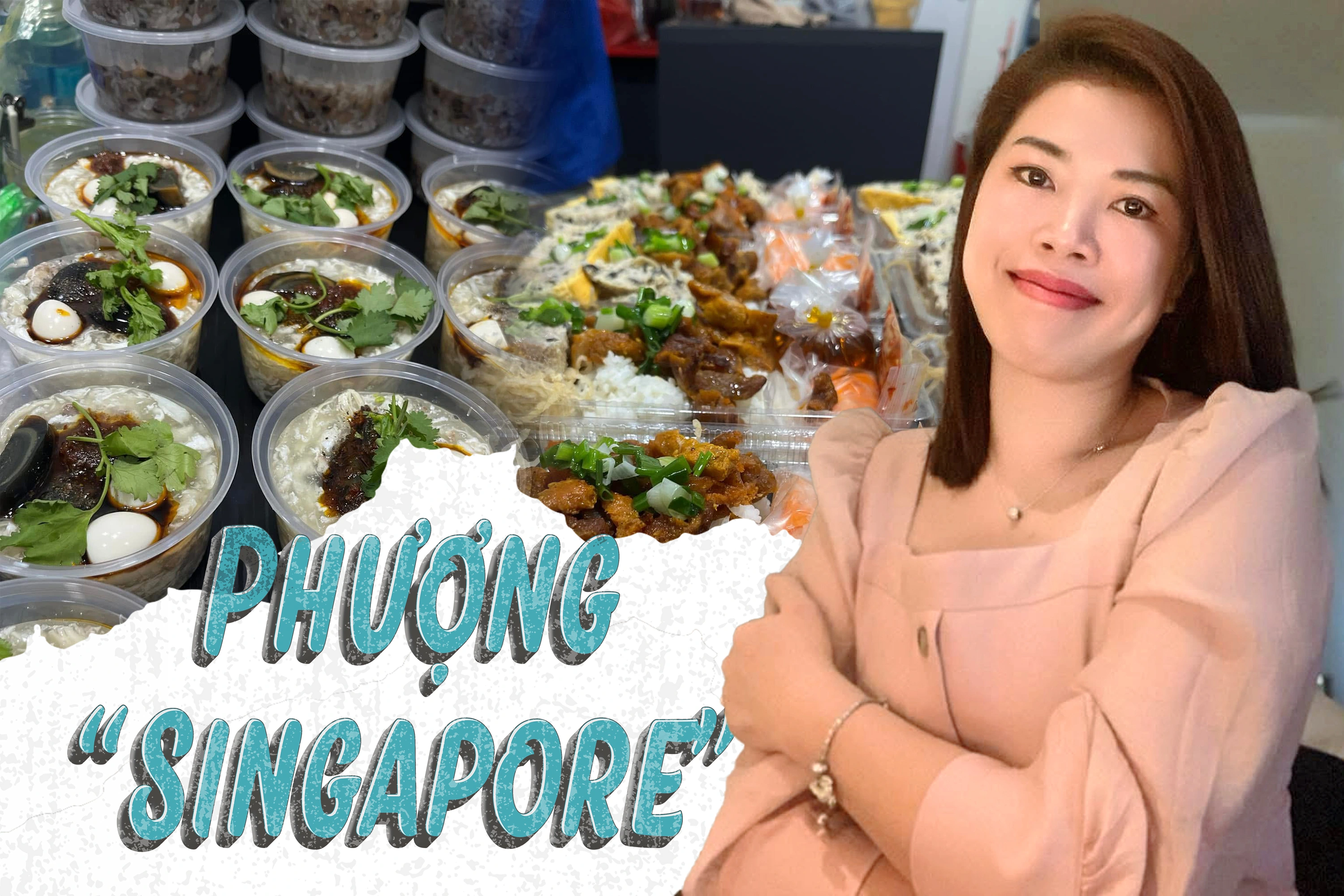
Comment (0)